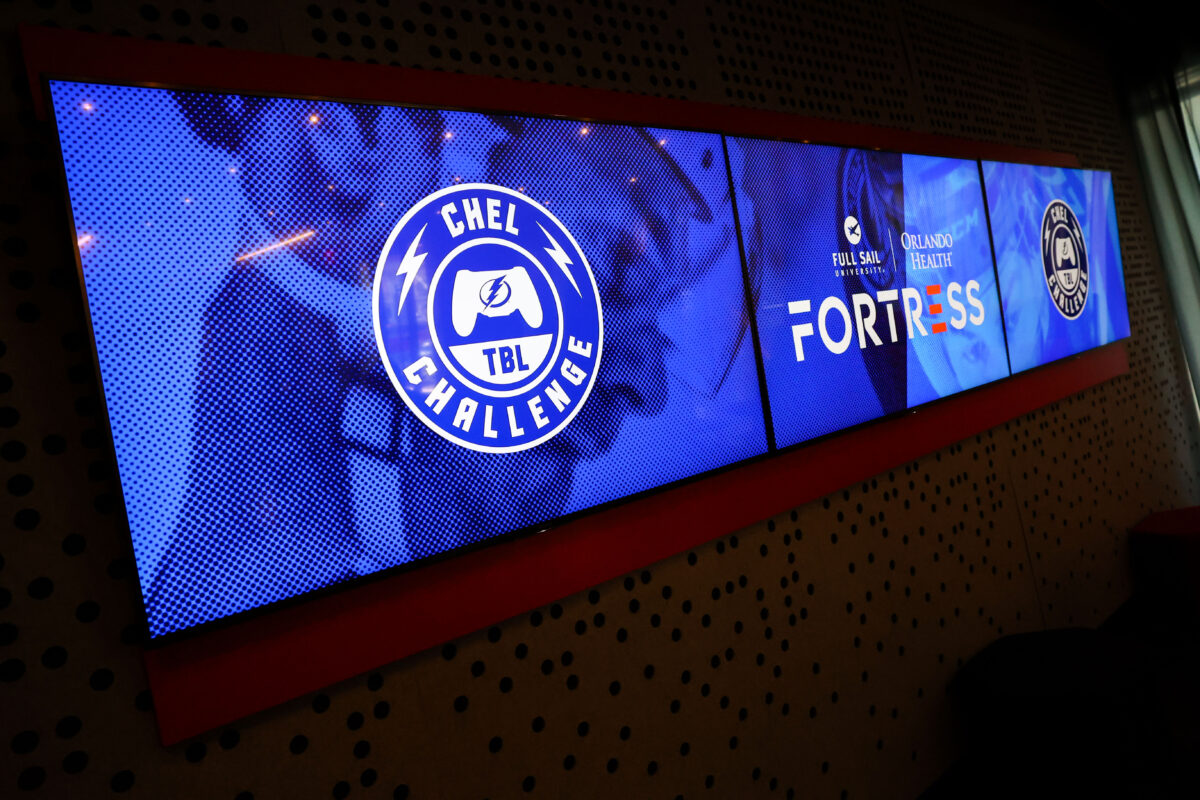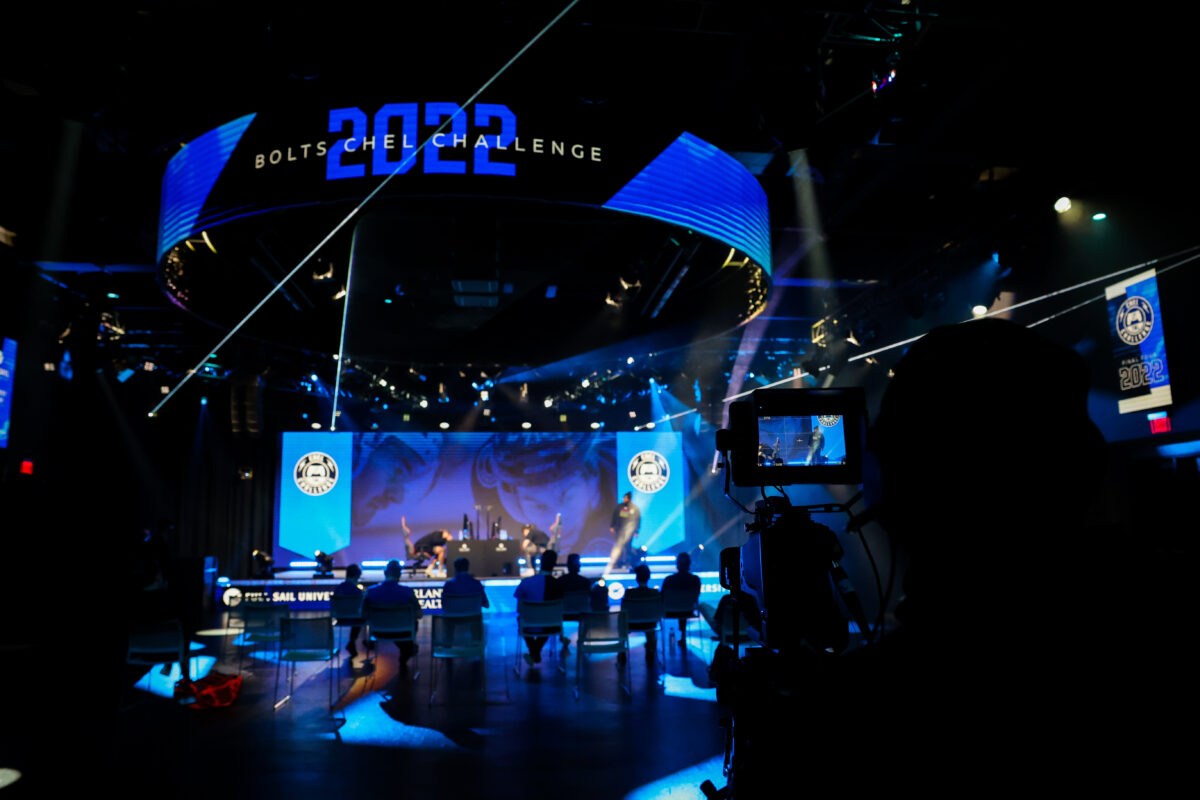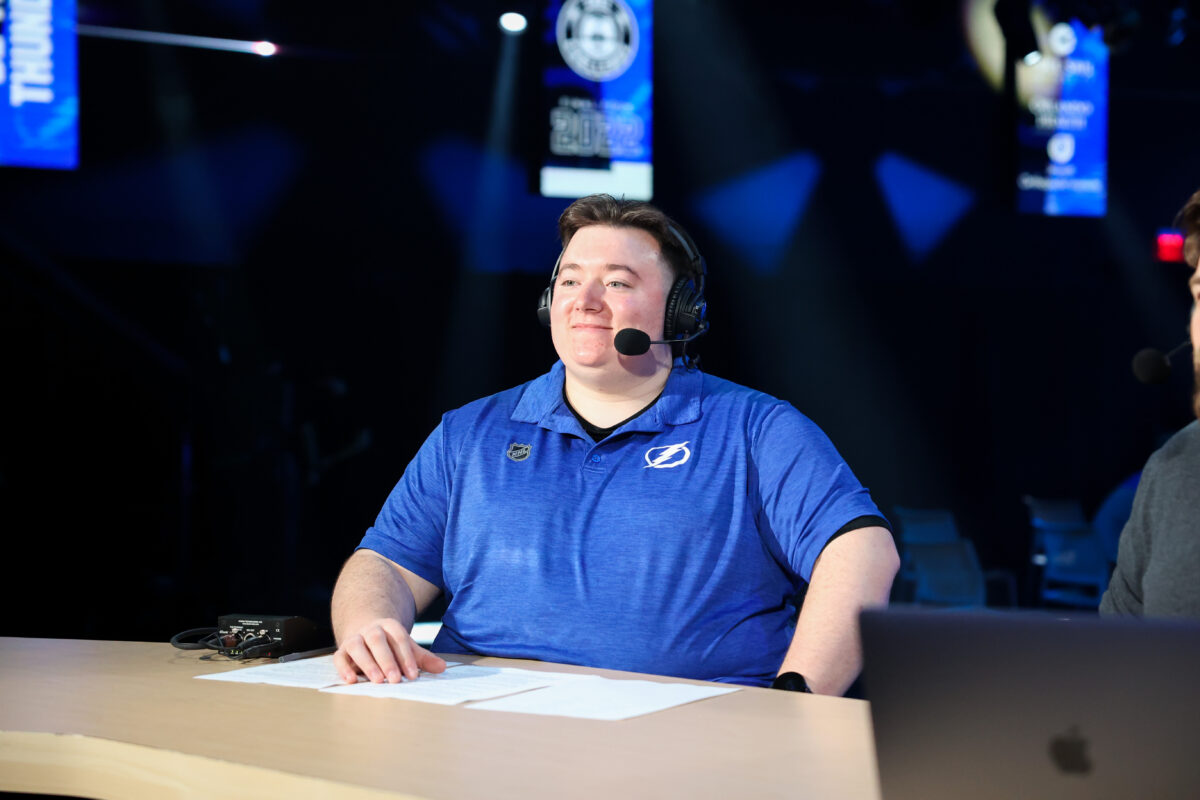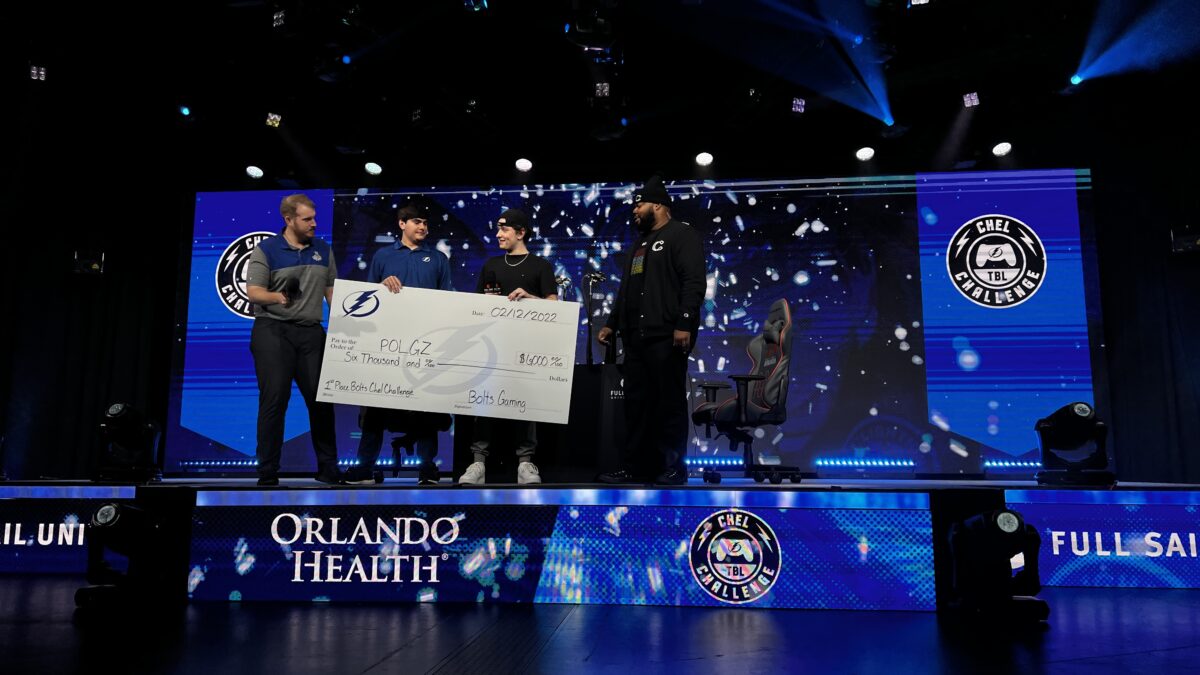If you’ve been a fan of hockey for any amount of time, you have, at some point, interacted with a hockey video game. Whether it was the rudimentary Ice Hockey on the Nintendo Entertainment System, Wayne Gretzky’s 3D Hockey in the Arcade, or the 30 year legacy of NHL games produced by Electronic Arts (EA), inevitably you have played, watched, or bought a hockey video game.
Over the last twenty years, the videogame landscape has shifted from a solitary experience or something you shared locally with a few friends to one with robust online features that allows you to compete with players across the world. This opened up a whole level of competition, as you could test yourself against the best and improve your play in ways that simply weren’t possible in the past.
Alongside the growth of online play, video streaming has gone from an impossible feat only the biggest companies could support to a relatively easy task. Now, a person in their home office can share live gameplay with thousands of fans in a matter of minutes, bringing unprecedented access and exposure to content creators.
As all of these changes became the norm, it’s only natural that competitive video game leagues would rapidly build alongside them. People will always push themselves to be the best, and there will always be a market to watch people doing something at the highest level.

In fact, in recent years, some esport leagues have become competitive institutions of their own, garnering prize pools and viewership numbers that rival even the largest sporting events. For example, the largest Defense of the Ancients 2 (DOTA 2) tournament, called “The International,” featured a $40-plus million prize pool in 2021, including an $18 million cash prize to the eventual winners.
Esports is About Building a Sustainable Community
Seeing the incredible growth of esports, traditional sports leagues are planning their course to stay relevant in this emerging industry. For example, the National Basketball Association (NBA) kicked off the NBA 2K League in 2018, which now features 23 teams across North America, many of which are affiliated with or organized by their NBA counterpart. In this league, there is a two-round draft to introduce new talent, players are signed to six-month contracts paying a salary between $30 to $40 thousand, and they featured a prize pool worth $1.5 million in 2021.
On the NHL side, there has been a less organized effort to get into esports. For the most part, teams have been left to organize their own events, and while there is an NHL Gaming World Championship, there hasn’t been that all-encompassing league built to match what the NBA is putting together.
Read Also: Top 10 Best Ice Hockey Leagues
This doesn’t mean that there isn’t a lot of interest in the competitive EA NHL gaming space, which is called Chel. Teams have been organizing their own live events for years to feature top players both locally and nationally, with these events pulling in viewership from tens of thousands of hockey fans.
Even as live events were largely put on hold over the last two years, growth still continued as streaming took on increased relevance in a lock-down world. However, despite online events being a functional substitute for big tournaments, there was a clear goal to once again bring Chel back with in-person competitions.
2022 Bolts Chel Challenge Brings Back the Live Event
With this backdrop, the 4th annual Bolts Chel Challenge occurred in person on Feb. 11th, 2022 at the Full Sail University Orlando Health Fortress in Winter Park, Florida. This was the first in-person Chel event in nearly two years, with players being flown in from around the world to compete for a grand prize of $6,000.
See, one aspect that sets the Bolts Chel Challange apart from other events is that they hold a qualifier in both North America and Europe, and provide the winners of these qualifiers with hotel and flights to compete on the main stage at Full Sail University.

As an institution with a background in media development, Full Sail took the initiative to be one of the leaders in the state of Florida by building “The Fortress,” which is the largest collegiate esports arena in the country. Even at a glance, you can see where the $6 million budget went for the Full Sail University Orlando Health Fortress (from ‘Full Sail’s new esports arena is a $6 million bet on the future of professional gaming’, Marco Santana, Orlando Sentinel, Mar. 5, 2019). The venue has a striking aesthetic that manages to combine the best aspects of a concert hall and sports stadium. Between the lighting, audio, and big screens running live gameplay, you immediately understand what a live esports event should look and feel like.
However, this event is not defined just by the in-person experience. While the atmosphere is best taken in live, most people will be watching online through Twitch Streaming. At its peak, the 2022 Bolts Chel Challenge hosted 6,000-plus concurrent viewers, and the video stream has been viewed 112 thousand times according to Twitch. This is by design according to Kevin Murray, CEO of Rare Drop Co, who is the Official Production Partner of Bolts Gaming.
“While we are incredibly proud of our live shows, we know that creating an engaging stream is our ultimate goal. We expect this to be our biggest Chel event in terms of viewership, especially since it will be hosted on the front page of Twitch to pull in even more interest. This community is hungry for high-quality tournament content, especially live events like the Bolts Chel Challenge.”
Kevin Murray, CEO of Rare Drop Co
Of course, behind a major event like this is a team running the show. At Full Sail, that team is largely comprised of students who are getting on-the-job training running everything from cameras and switchboards to lighting and audio. An event of this size had a staff of about 15 students, all plying their trade to create a professional-grade experience both in person and on stream.
Bolts Esports Has Seen Continued Growth With Chel
Just like any competitive event, storylines and drama quickly developed around the Bolts Chel Challenge. The first semifinal went quickly, as Ethan “Polgz” Polgar dispatched Hannes “Hans’ Kettunen of Finland in straight sets, 2-0 and 6-3. Following this, 18-year-old North American Joseph “Jos” Olmstead pulled off a surprising comeback win against 3-time European Champion Erik “Eki” Tammenpää of Finland, winning 4-3 and 3-0 after dropping Game 1 5-0. So, despite bringing in some of the top players in Europe, we ended up with an all-North American Final.
Related: The State of College Hockey in Florida
When the first Bolts Chell Challenge was held back in 2019, it didn’t feature the same level of glitz and glamor as 2022. As said by Lightning Digital Content Coordinator Jeremiah Woodward “I remember the first Chel Challenge we did on the concourse of the arena prior to a game, and now we are going to Full Sail to put on a real spectacle of a show!”
The Lightning have continued to be a front runner in always trying to give some of the bigger prize pools as well as open our competition to Sweden and Finland, something that isn’t super common among the US based tournaments.
Jeremiah Woodward, Tampa Bay Lightning Digital Content Coordinator
While the first tournament wasn’t on the same level production-wise as what was held years later, it laid the groundwork for what a Bolts esports event should be. As Woodward expanded upon “The Lightning have continued to be a front runner in trying to give some of the bigger prize pools as well as open our competition to Sweden and Finland, something that isn’t super common among the US-based tournaments.” This commitment has allowed the Bolts Chel Challenge to grow from being a fun sideshow you watched as you headed into Amalie Arena to a showcase event for the team.
Chell Commentators Have a True Hockey Presence
As the competition kicked off, you quickly understood why people would watch the Livestream. Sure, it is just NHL 22 gameplay, but Rare Drop, Bolts Gaming, and Full Sail get all of the details right that make it an engaging product that rivals any event you’d watch on cable television.
One such detail is the commentating duo of Anthony “GrizGoal” Scibilia and Cam “NoSleeves” Halbert. These commentators help create a genuine authenticity to the gameplay with their playcalling and commentary that put the overall experience on par with what you would expect to hear from a traditional broadcast. Their level of passion and ability is immediately engaging, which is the ultimate goal of any announcer.

When I asked Scibilia about the NHL commentators he grew up listening to, his answer perfectly summarized his passion for both the sport and for the art of commentating.
Growing up in Buffalo, we’ve been blessed to have Rick Jeanneret calling the games for the last 50 years. My entire childhood is filled with iconic RJ calls that send chills down your spine when you hear them… Outside of RJ, there are a few others that have left a lasting impact on me. Jim Hughson, Doc Emrick, Joe Beninati, and Marc Moser are high up on the list. There are so many great commentators that find a way to bring excitement and energy to every game and add an entirely different dimension to watching a game.
2022 Bolts Chel Challenge commentator Anthony “GrizGoal” Scibilia
Chel Finals Featured Close Games and Must-See Plays
As the semifinals concluded, a $5,000 scholarship was presented to a Full Sail University Student by Bolts Gaming, then Game 1 of the Final kicked off. This match was a hard-fought grind, with Polgz scoring one goal and shutting down the offensive firepower of Jos. Game 2 went the other direction, with Olmstead holding off a late surge from Polgar to win 4-1, sending the tournament to a winner take all Game 3.
As both players prepared themselves for the final game, the atmosphere in “The Fortress” was electric. Fans, players, and coaches waited with bated breath as both sides locked in their rosters and the puck dropped.
In Game 3, Polgz shook off any difficulties he faced from his first loss of the event and jumped out to a 1-0 lead in the first period. Less than three minutes into the second period, both sides traded goals, keeping the match close. With Jos pressuring to tie it up, Polgz jumped on a breakaway opportunity to score what was, inarguably, the goal of the tournament, which has to be seen to be appreciated.
Now up 3-1, Polgz continued to play his dominant defensive game and closed out Jos with a 4-2 victory, securing the $6000 grand prize.
Esports Will Be Part of NHL’s Future
It’s important to understand what the ultimate goal of esports is. Events like the Lightning Chel Challenge aren’t looking to replace traditional NHL games, but instead are going to be a new avenue for interaction with the sport. Watching a video game clearly can’t replicate the experience of a live hockey game, but after spending even a few minutes spectating these games either online or in-person, it’s impossible to not get swept up in the excitement.

The reason for this is simple. Even if the games are played with a controller, these events still have that human element that gives sports life. Whether it is fans celebrating after an impossible goal, players shaking with nerves as they enter the stage for their first live tournament, or announcers making a perfect call that mimics the best you would hear on the radio, you tune in because there is genuine excitement and passion for the competition.
It’s understandable if you haven’t interacted with Esports before, as the medium is still relatively new. However, the one thing you can’t do is write off esports as “just videogames.” While the medium of play may be virtual, the experience is real, and whether you are ready for it or not, the day is coming when events like the Lightning Chel Challenge will be the norm.
THW would like to give a big thank you to Rare Drop Co CEO Kevin Murray, Full Sail University Esports strategist Bennett Newsome, and Jeremiah Woodward of Bolts Gaming for taking the time to answer our questions and invite us to the 2022 Chel Challenge.
If you would like to watch the full tournament, that can be viewed here on the LightningNHL Twitch page.